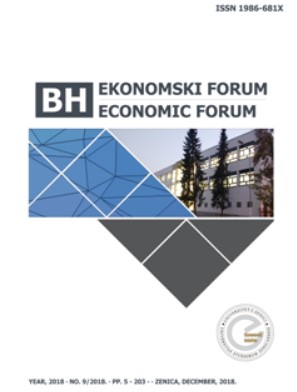THE EFFECT OF MATERIALISTIC AND NONMATERIALISTIC MOTIVATIONAL FACTORS TO EMPLOYEES' COMMITMENT TO WORK
THE EFFECT OF MATERIALISTIC AND NONMATERIALISTIC MOTIVATIONAL FACTORS TO EMPLOYEES' COMMITMENT TO WORK
Author(s): Suvad Isaković, Ajdin Isaković, Kanita IsakovićSubject(s): Organizational Psychology, Behaviorism, Human Resources in Economy
Published by: Ekonomski fakultet - Univerzitet u Zenici
Keywords: Motivation; commitment to work; employees; materialistic factors; nonmaterialistic factors;
Summary/Abstract: The success of each business relies on the employees' commitment to work, i.e., how and in which way employees perform their work. When consumers are offered the same or similar products produced by different companies and at different prices, and when the company's business result greatly depends on the quality of the work done, company management is more interested in securing its employees' full dedication to work. The generally accepted phrase "you get what you pay for" encouraged this research, whose purpose is to determine the strength of the relationship between materialistic and nonmaterialistic motivational factors to employees' commitment to work. This research starts with the assumption that materialistic factors of motivation are more important motivational factors for employees when compared to nonmaterialistic ones. Listed indicators of motivational factors represent independent variables, while the dependent variable represents the indicator 'work satisfaction', which determines the level of employees' commitment to work. The research had 147 participants who work in companies from different industries and different sizes. According to the Likert scale, a structured questionnaire was used to measure the employees' attitudes. Various methods for data processing in Statistical Package for the Social Sciences (SPSS) and Smart PLS3 program were used: Descriptive statistics of the sample (SPSS); Exploratory factor analysis - PCA analysis of principal components (SPSS): Factor analysis - a test of validity and confidence of the instruments (SmartPLS3); Bootstrapping analysis - testing of the hypothesis (SmartPLS3).
Journal: BH ekonomski forum
- Issue Year: 13/2020
- Issue No: 2
- Page Range: 97-112
- Page Count: 16
- Language: English

